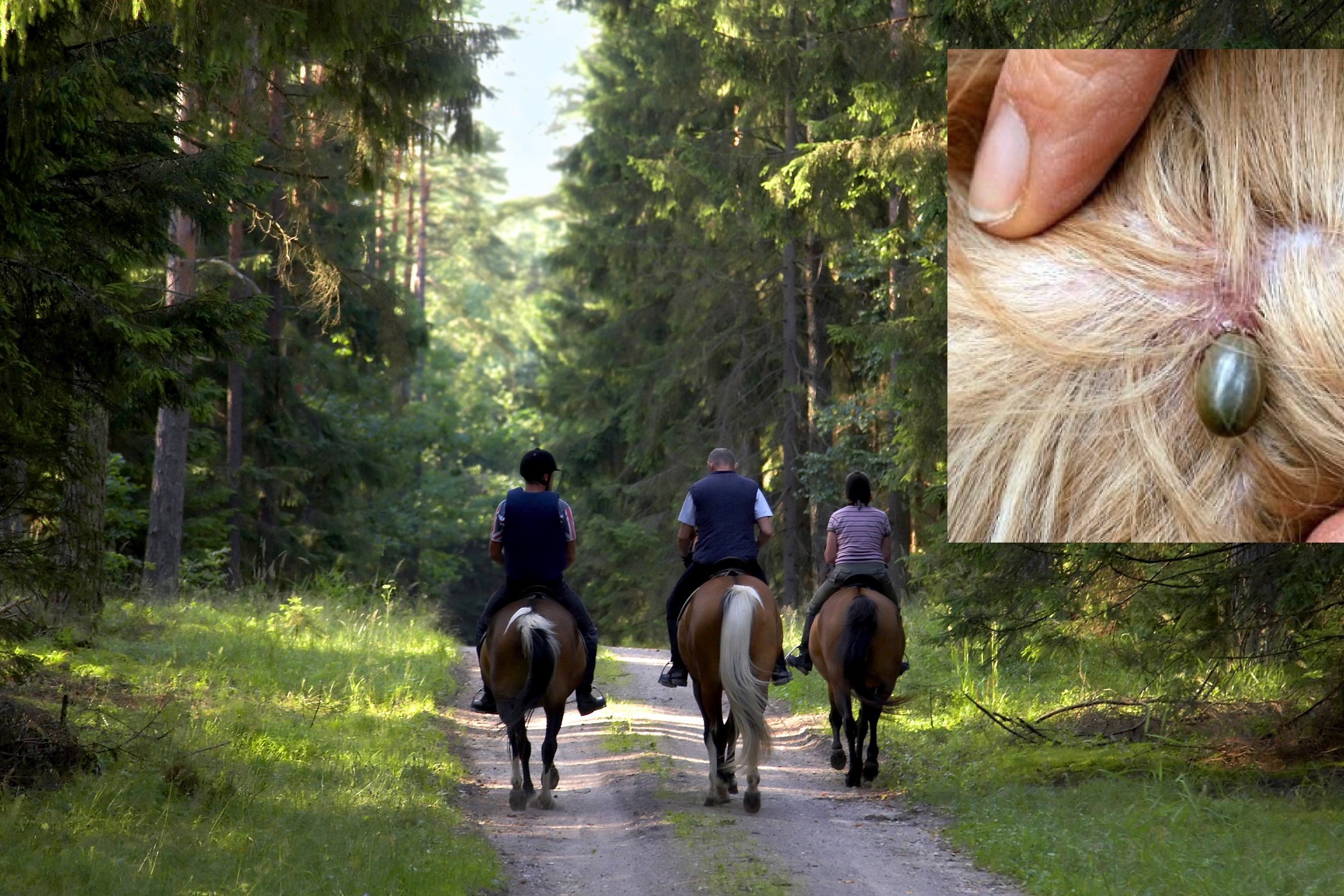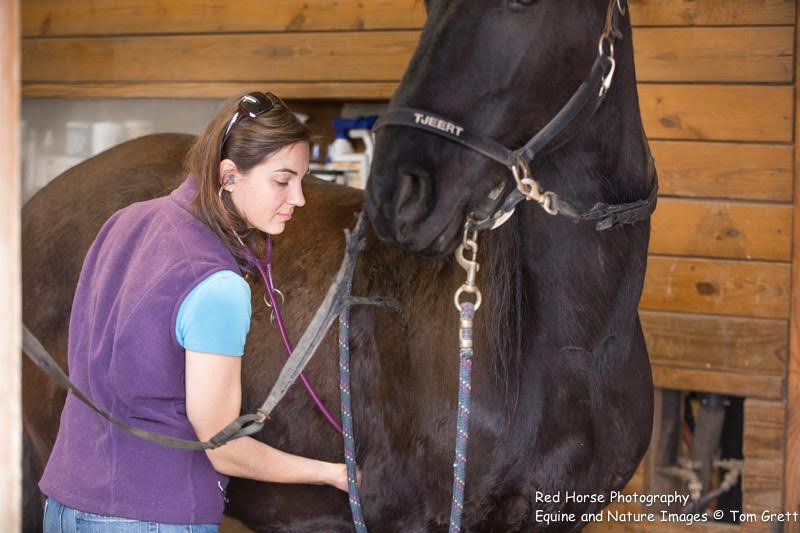
Client Seminar: The Trouble With Ticks
February 5, 2017
The Night Shift
February 5, 2017
Physical Exam
Do you ever wish your horse could talk? There are probably at least a dozen topics that you would love to discuss with your horse if that were the case. But is wellness a topic that comes to mind? The lack of verbal communication often makes it more difficult for owners and veterinarians to monitor overall health and changes over time. No one likes going to the doctor, but annual physical examinations are an important component to the overall wellness status of your horse. These exams aid your veterinarian in determining your horse’s baseline health parameters and in monitoring any changes that occur in the future.
Depending on the circumstances, physical exams can range from brief to extensive. A brief physical exam may simply consist of temperature, heart rate and respiratory rate, as well as auscultation of the heart, lungs and gut. An exam may also be tailored to the problem at hand, such as lameness, in which cases your vet will do a more thorough examination of muscle, tissue, movement, etc.
Most commonly, an annual physical examination is a much more thorough evaluation of your horse’s overall condition and health. It may include body weight measurement and body condition scoring, dental evaluation, ocular (eye) exam, auscultation of the heart, lungs and gut, evaluation of the sheath and penis in stallions and geldings, and hoof care.

Weight Tape for Body Condition Score
An apple a day keeps the doctor away, but too many apples (or treats) could cause unexpected weight gain. Just like their human counterparts, horses can also have weight fluctuations over the course of a year. Taking weight tape measurements and recording a body condition score each year are good ways to monitor for any drastic changes in your horse’s overall weight and fitness. There are so many factors that can alter body condition and weight control, so many in fact, we could write another article on body weight altogether! The real importance of tracking the body condition score on a yearly basis is acknowledging drastic changes in body weight. Changes may be a symptom of an underlying condition that requires further investigation.
Dental exams should be performed yearly and can range from a quick glance in the mouth of an un-sedated horse, to a sedated exam using a dental speculum, which provides opportunity for a more thorough evaluation of the teeth. Your veterinarian will evaluate the mouth for sharp enamel points on the molars, general alignment of the teeth, look for fractures or loose teeth, as well as soft tissue ulcerations on the cheeks and tongue, to list a few components. Choice of an un-sedated versus sedated exam may depend on patient cooperation.
A basic eye exam will be performed to evaluate the outer and inner structures of the eye, looking for any abnormalities to include cataracts, inflammation or decreased vision.
Every physical exam should include an evaluation of the heart, lungs and gastrointestinal tract. This is important in evaluating whether or not there are any abnormalities such as a heart murmur or arrhythmia, increased or abnormal lung sounds and presence of normal gut sounds.

Hoof Evaluation
Geldings and stallions should have their sheath and penis evaluated at least once a year as most of the time it is not able to be observed well in the absence of sedation. A great time to do this is when the horse is sedated for a dental procedure or following their annual physical examination. Hoof care is also very important and should not be overlooked. Examination of the hoof allows for veterinarians to make suggestions about shoeing based on observation and farrier x-rays evaluating hoof balance and bony alignment. It will also give them the opportunity to identify any problems. All of these physical exam components provide us with a normal baseline for your horse and help us to detect any changes or abnormalities.
Many other things can be evaluated in conjunction with the annual physical exam such as baseline blood work, fecal parasite testing, microchip implantation/identification, Equine Infectious Anemia (Coggin’s) testing, testing for PPID (Equine Cushing’s) and/or Equine Metabolic Syndrome. It is important for you and your veterinarian to discuss your horse’s medical history and the health risks associated with their lifestyle and activities. Your veterinarian can create a tailored individual annual wellness exam and program for your horse.
In the spring of 2017, Allegheny Equine will be incorporating annual wellness physical examinations into our spring vaccination visits. We feel that a thorough annual physical exam is an essential component of your horse’s individual health care plan. We are dedicated to your horse’s overall well-being and feel that annual physical exams are critical to early detection of health changes and proactive preventative care.
